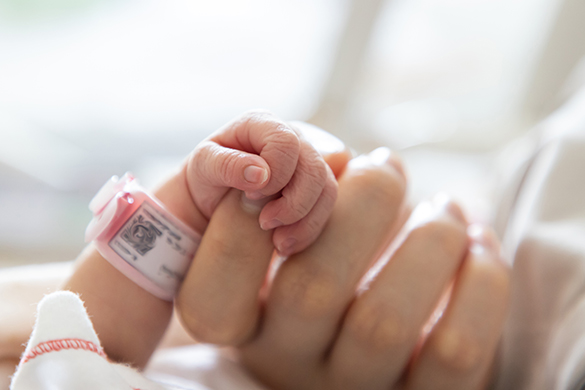Preeclampsia is high blood pressure or “hypertension” brought on by pregnancy. While serious, preeclampsia is also not exactly uncommon—it affects between 5% and 10% of pregnant women. Preeclampsia must be treated and managed effectively to protect both mother and child.
No one knows what causes preeclampsia, but some believe the following factors make a woman more at risk:
- Overweight
- Over 40 years of age
- Multiple gestation
- History of high blood pressure
It is the doctor’s responsibility to monitor you for signs of preeclampsia, which usually reveals itself in the late second trimester or the third trimester. In most cases, women do not notice any apparent symptoms.
If untreated, however, preeclampsia can lead to serious health ramifications for both the mother and infant.
If you, your baby, or a family member suffered injury or death because a doctor failed to treat preeclampsia or HE syndrome, contact Aldous Law today at (214) 526-5595 for a free case evaluation.
What Is Preeclampsia?
Preeclampsia is a pregnancy complication marked by high blood pressure and signs of damage to other organ systems, most often the liver and kidneys. It typically develops after the 20th week of pregnancy and can pose serious risks to both mother and child if not promptly diagnosed and managed.
When left untreated, preeclampsia may progress to eclampsia, which includes seizures and can be life-threatening.
What Is HE Syndrome?
HE stands for:
- Hemolysis / red blood cell breakdown
- Elevated liver enzymes
- Low Platelet Count
This condition usually appears in the third trimester of pregnancy, and it is extremely rare, affecting only about 1 or 2 pregnancies per 1,000. Women with preeclampsia are much more at risk.
Between 10% and 20% of pregnant women with preeclampsia will be diagnosed with HE syndrome.
Recognizing the Signs and Symptoms of Preeclampsia
Preeclampsia often develops silently, without noticeable symptoms in the early stages. However, some women may experience signs such as:
- Persistent headaches
- Swelling in the hands, face, or legs
- Sudden weight gain
- Vision disturbances (blurred vision, seeing spots)
- Pain in the upper right abdomen
- High blood pressure readings
Healthcare providers must monitor these signs through routine checkups, especially in the second and third trimesters. Failure to detect and respond to symptoms may lead to preventable injury.
Who Faces Higher Risks of Preeclampsia and Maternal Complications?
Certain maternal health factors and conditions can increase the likelihood of developing preeclampsia. These include:
- A prior history of preeclampsia or chronic hypertension
- Carrying more than one fetus (twins, triplets, etc.)
- First-time pregnancies
- Obesity or high body mass index (BMI)
- Age over 40
- Diabetes or kidney disease
Women with these risk factors should be carefully observed throughout pregnancy, and physicians must act decisively when early warning signs emerge.
Birth Injuries and Fatal Outcomes Tied to Preeclampsia
Without timely intervention, preeclampsia can lead to severe complications. These may include restricted fetal growth, premature birth, placental abruption, or stillbirth. Mothers may suffer organ damage, stroke, or seizures.
In the worst cases, both maternal and neonatal deaths can occur.
When such outcomes result from medical negligence or delayed diagnosis, families are left to cope with a profound loss that could have been prevented.
Legal Options for Families Affected by Preeclampsia Negligence
When doctors fail to recognize or respond to signs of preeclampsia or HELLP syndrome, they may be held legally responsible for resulting injuries or death.
If you or your child suffered harm due to delayed diagnosis, poor monitoring, or mismanagement of these conditions, you may have grounds for a medical malpractice claim.
Our Dallas Preeclampsia Lawyers at Aldous Law are here to help you understand your rights and pursue justice.
If you or your child suffered a birth injury, speak with our team at Aldous Law today.
Schedule a Free Consultation When You Call (214) 526-5595
Healthcare providers have a responsibility to protect their patients from severe complications. With preeclampsia and HE syndrome, the best course of action for both mother and baby is to deliver the child as soon as possible.








